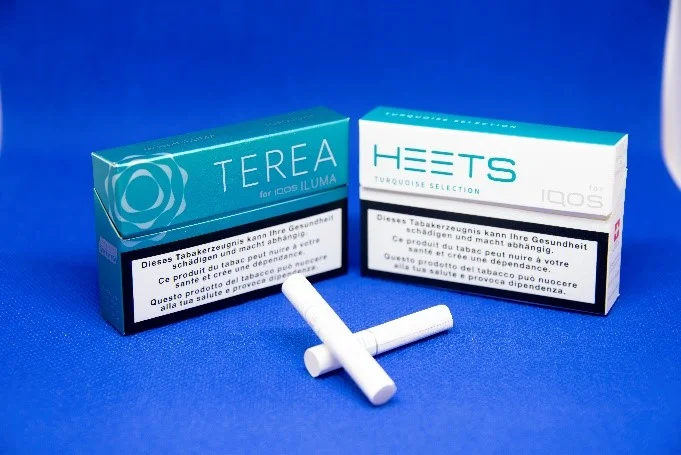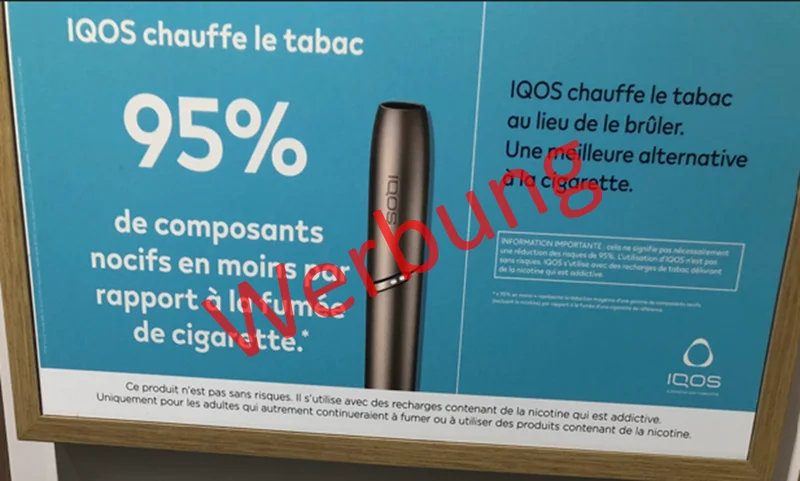- 12.06.2023
- News
New Research Sheds Light on the Health Effects of Heated Tobacco Products
A recent study from the Medical University of Silesia in Katowice, Poland, has made significant strides in understanding the acute health effects of using heated tobacco products (HTPs). Although HTPs have been around since 1988, they've recently gained popularity, changing the landscape of tobacco use globally.

Image: Examples of TEREA and HEETS used for PMI's ILUMA and IQOS brands
As the health effects are not as well documented as those of traditional cigarettes understanding the impacts of HTPs on human health is now a crucial area of scientific inquiry.
The researchers examined the immediate effects of HTPs on the respiratory and cardiovascular systems, comparing these with traditional cigarette smoking and e-cigarette usage. The study involved 160 young adults aged between 18 and 30 years. The participants were divided into four groups: traditional cigarette smokers, HTP users, e-cigarette users, and a non-smoking control group.
The results revealed that immediately after using HTPs, participants showed significant changes in various respiratory and cardiovascular health parameters. Notably, fractional exhaled nitric oxide (FENO) - a marker of inflammation in the airways - showed a statistically significant decrease after HTP use. This decrease was also observed after traditional cigarette smoking and e-cigarette usage. Additionally, all groups using nicotine-containing products, including HTPs, showed an increase in heart rate and blood pressure.
This recent study stands out as one of the first studies to have shown the acute health effects of HTP use. However, due to the relatively short time HTPs have been on the market, long-term health effects are yet to be studied. The observed acute effects on respiratory and cardiovascular health are extremely worrying, especially since HTPs are often marketed as less harmful alternatives to traditional cigarettes. The researchers emphasize the need for further study to fully understand the health effects of HTPs. Moreover, they urge policymakers to use these findings to strengthen tobacco regulation, while physicians can use this evidence to develop up-to-date guidelines on nicotine and tobacco use. The findings should also support the need for stronger regulations on HTP advertising and taxation given the potential health risks observed in this study.
The study represents a significant step forward in understanding the health impacts of HTPs. As more people turn to these products, continuing research in this area is both necessary and urgent, particularly the effect of HTP aerosol on passive smokers.
Swiss context
Philip Morris International (PMI), the dominant market player, is intensively promoting their primary HTPs, namely IQOS and ILUMA. The landscape of the HTP market, as it stands today, is characterized by a remarkable absence of constraints on selling these products or advertising them across both print and digital media platforms. This leniency provides PMI, along with British American Tobacco's (BAT) recent addition to the Swiss HTP market, their brand glo, an unhindered avenue to proliferate their influence and products nationwide. For instance, PMI’s IQOS brand has been falsely advertised as a 95% safer alternative to tobacco (see image below). This claim does not stand on any scientific base, and it has no scientific value: it’s just a marketing argument intended to mislead consumers. PMI also use this claim to argue that HTP should be taxed less than cigarettes.
For the purpose of public health, it is becoming increasingly evident that Switzerland, will need to institute more rigorous regulations. These would aim to control both the advertising and sale of heated tobacco products and strongly increase their taxation. As we approach the implementation of the new Tobacco Products Act in 2024, it will be crucial for these aspects to be enforced to ensure the wellbeing of the population in the face of the evolving tobacco product market.

Image: example of an advertisement by PMI for its IQOS product, November 2022